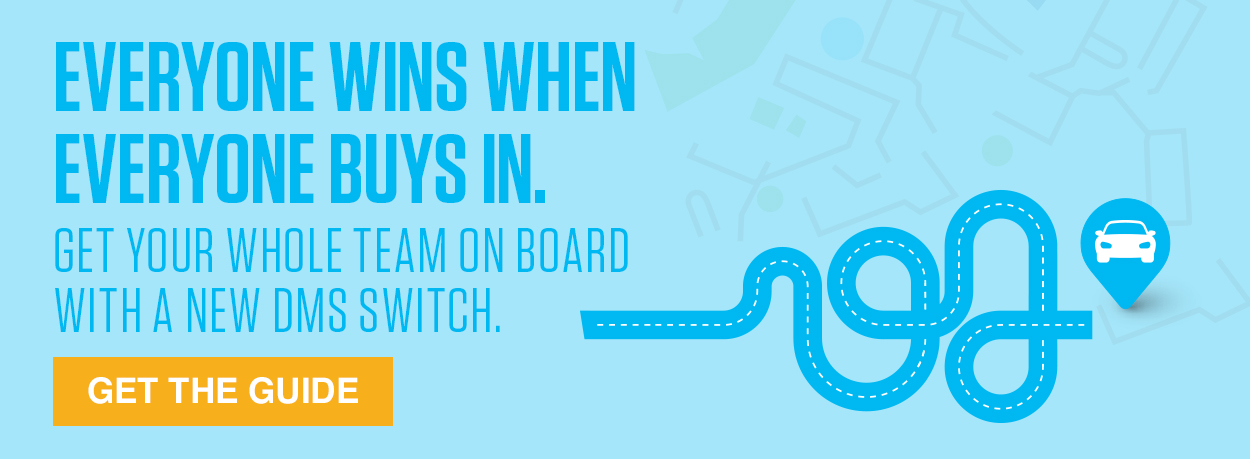Your dealership’s technology plays a significant role in your day-to-day business—sometimes in ways that aren’t immediately apparent. The right tools can improve how efficiently your data travels between systems, speeding up transactions for clients, and delivering exceptional service. And, while it may be difficult to quantify—at first—more efficient technology improves the lives of everyone who interacts with your dealership. Most notably, your current and future staff. When it comes down to it, the technology driving your dealership can literally drive away the talent you need to deliver the best customer experience. While the right DMS can help you attract and retain top talent, the wrong technology can deter both talent and customers from coming to your dealership.
Retain Talent for Customer Continuity
Despite the increasing popularity of digital car buying tools and the prevalence of online car shopping, your customers still want a personalized car buying experience. In fact, up to 80% of consumers are more likely to do business with a company that offers a personalized experience, according to one study1. They just want it on their terms and in their own time. And most eventually want to actually see the car they’re buying and meet the dealer they’re doing business with in person.
The fact that your customers want to complete much of the car buying process on their computers can, however, make it difficult for your team to personalize their experience. This difficulty is compounded by the fact that the automotive sales industry has one of the highest turnover rates in any industry, which has the potential to frustrate customers looking for a cohesive online to in-store buying experience.
Today’s workforce values technology. When they work with technology that facilitates next-gen tools attracts, it gives them reasons to stay at your come to and stay at your dealership, resulting in more continuity for your customers. This cuts down on hiring and turnover costs and makes your customers’ transition between online and in-store shopping much smoother.
“If we don’t invest in technology, the market passes us by. It’s critical that our staff has the tools that they need to help answer client questions. That’s where the technology comes in. Dealertrack provides us a very easy-to-use, simple solution.” – Jeanne Brewer, General Manager Acura of Glendale
A Next-Gen DMS Empowers the Next-Gen Sales Team
The right DMS (and the right DMS partner) also gives your dealership access to real-time data, without restraints, enabling better sharing of information, better customer hand-off between incoming and outgoing employees (when turnover does happen), and a better understanding of your business for everyone involved. All of these benefits ultimately get passed along to your customers and to your dealership’s bottom line.
And a failure to take your dealership’s DMS technology into consideration—the single source of truth for all of your data and day-to-day operations—can cost you both staff and sales. As Jeanne Brewer, General Manager Acura of explains, “If we don’t invest in technology, the market passes us by. It’s critical that our staff has the tools that they need to help answer client questions. That’s where the technology comes in. Dealertrack provides us a very easy-to-use, simple solution.”
Your dealership’s technology really does play a significant role in your day-to-day business, especially as you transition to incorporate more digital tools. Whether part of the onlineor in-store buying experiences (and especially the exchange in between), the right (and wrong) DMS technology can help or hinder your talent retention, your customer’s experience, and your business’s bottom line.
To learn more about how your DMS technology play a role in retaining top talent, check out The Dealer’s Guide For Maximizing Profitability.
1Epsilon Marketing, “The power of me: The impact of personalization on marketing performance,” 2018














 Mandi Fang
Mandi Fang




